Xavier Trepat
Group leader
Xavier Trepat receives the ERC Advanced Grant to lay the basis of a new generation of biological robots
 The researcher at the Institute for Bioengineering of Catalonia (IBEC), Xavier Trepat, has received the prestigious ERC Advanced Grant awarded by the European Research Council (ERC) worth 2.5 million euros.
The researcher at the Institute for Bioengineering of Catalonia (IBEC), Xavier Trepat, has received the prestigious ERC Advanced Grant awarded by the European Research Council (ERC) worth 2.5 million euros.
Thanks to this grant the expert and his group will be able to study the mechanical properties of the epithelium in 3D and to lay the foundations for a pioneering technology called “Epifluidics”, which will allow the design of biological robots.
The broom challenge
 Xavier Trepat reveals to the Ara journal the secret behind the famous boom challenge.
Xavier Trepat reveals to the Ara journal the secret behind the famous boom challenge.
“The silent revolution of the mini-organs” Xavier Trepat in the ARA newspaper
During the EMBL-IBEC Winter Conference held on February 10-12 in La Pedrera, Xavier Trepat, principal investigator at IBEC, was interviewed for the ARA newspaper.
EMBL-IBEC Winter Conference 2020
The conference organised by the Institute for Bioengineering of Catalonia (IBEC) and the European Molecular Biology Laboratory (EMBL) brought together a total of 200 international experts in the field of bioengineering at La Pedrera building in Barcelona.
The EMBL-IBEC Winter Conference comes to an end with a huge success in terms of participation
This week, the conference organised by the Institute for Bioengineering of Catalonia (IBEC) and the European Molecular Biology Laboratory (EMBL) brought together a total of 200 international experts in the field of bioengineering at La Pedrera building in Barcelona.
At the opening of the event, which was led by the mayor of Barcelona, Ada Colau, attention was drawn to Barcelona’s consolidation as an international centre of research and knowledge.
IBEC recieves funding for three projects thanks to la Marató 2018
 Three IBEC projects have been selected to receive funding from “La Marató 2018: Against Cancer.” One of the projects is led by the researcher Pere Roca-Cusachs and the other two are co-led by the researchers Xavier Trepat and Núria Montserrat.
Three IBEC projects have been selected to receive funding from “La Marató 2018: Against Cancer.” One of the projects is led by the researcher Pere Roca-Cusachs and the other two are co-led by the researchers Xavier Trepat and Núria Montserrat.
The awarding ceremony took place on October 30 in the Auditorium of the Academy of Medical and Health Sciences of Catalonia and the Balearic Islands. In this edition, over the 188 evaluated projects, 43 have been selected by an international committee of experts in cancer based on their excellence, methodology and relevance. La Marató de TV3, together with Catalunya Ràdio, broadcasts its annual telethon to raise funds for scientific research into various diseases with a different theme each year.
Great success of the Mechanobiology of Cancer Summer School 2019 organised by the Mechano·Control project
 More than 60 people attended the “Mechanobiology of Cancer Summer School 2019” organised by IBEC as the center is in charge of coordinating the Mechano·contorl project. The summer school was held in Prullans, a tiny village located at the Catalan Pyrinees between 17 and 21 of September. The event was a great success both in participation and scientific level. The aim of the summer school was to provide training on mechanobiology, and specifically its application to breast cancer, and promote interactions between professionals of the field.
More than 60 people attended the “Mechanobiology of Cancer Summer School 2019” organised by IBEC as the center is in charge of coordinating the Mechano·contorl project. The summer school was held in Prullans, a tiny village located at the Catalan Pyrinees between 17 and 21 of September. The event was a great success both in participation and scientific level. The aim of the summer school was to provide training on mechanobiology, and specifically its application to breast cancer, and promote interactions between professionals of the field.
The school included lectures as well as practical workshops in different techniques and disciplines, ranging from modelling to biomechanics to cancer biology. The Mechano·Control project, coordinated by Pere Roca-Cusachs, principal investigator of the IBEC is the largest European project coordinated by the IBEC to date.
Binucleated cells could be the key in heart regeneration
A research team led by the IBEC, in collaboration with the CMR [B], discovers a mechanism that generates binucleated cells.This mechanism has been identified during the regeneration of the heart of the zebrafish, and could be associated with the extraordinary regenerative power of this animal.
After an acute heart lesion, such as a myocardial infarction, the human heart is unable to regenerate. The adult cardiac cells cannot grow and divide to replace the damaged ones, and the lesion becomes irreversible. But this does not happen in all animals. A freshwater fish native to Southeast Asia, known as a zebrafish, can completely regenerate its heart even after 20% ventricular amputation.
ERC President visits IBEC
The President of the European Research Council, Jean-Pierre Bourguignon, visited last May 15th the Institute for Bioengineering of Catalonia (IBEC).
The event was inaugurated by IBEC’s Director, Josep Samitier, who presented an overview on the cutting-edge research carried out at the institute in the fields of bioengineering and nanomedicine.
Afterwards, ERC Grantees working at IBEC had the opportunity to explain the impact of ERC grants on their professional careers and established a dialogue with ERC President on the past, present and future of the European Research Council.

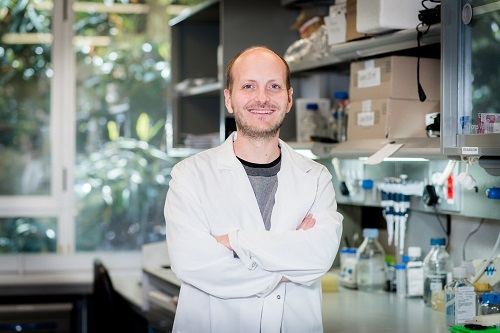
 Several media channels have reported this year’s European Research Council grants to various projects being undertaken in Catalonia. Among these projects is that of Xavier Trepat, group leader at IBEC.
Several media channels have reported this year’s European Research Council grants to various projects being undertaken in Catalonia. Among these projects is that of Xavier Trepat, group leader at IBEC.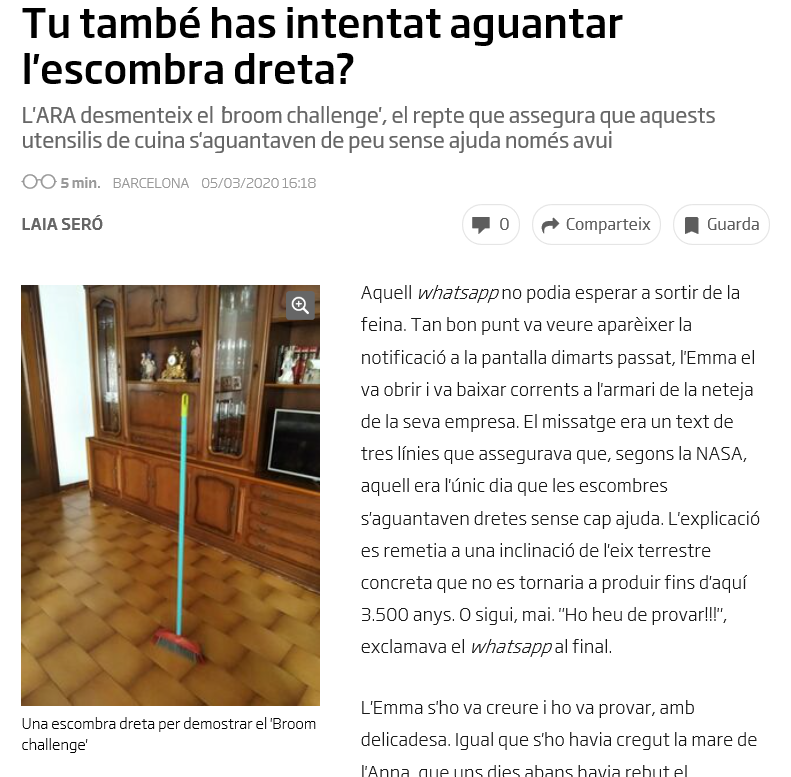
 Xavier Trepat reveals to the Ara journal the secret behind the famous boom challenge.
Xavier Trepat reveals to the Ara journal the secret behind the famous boom challenge.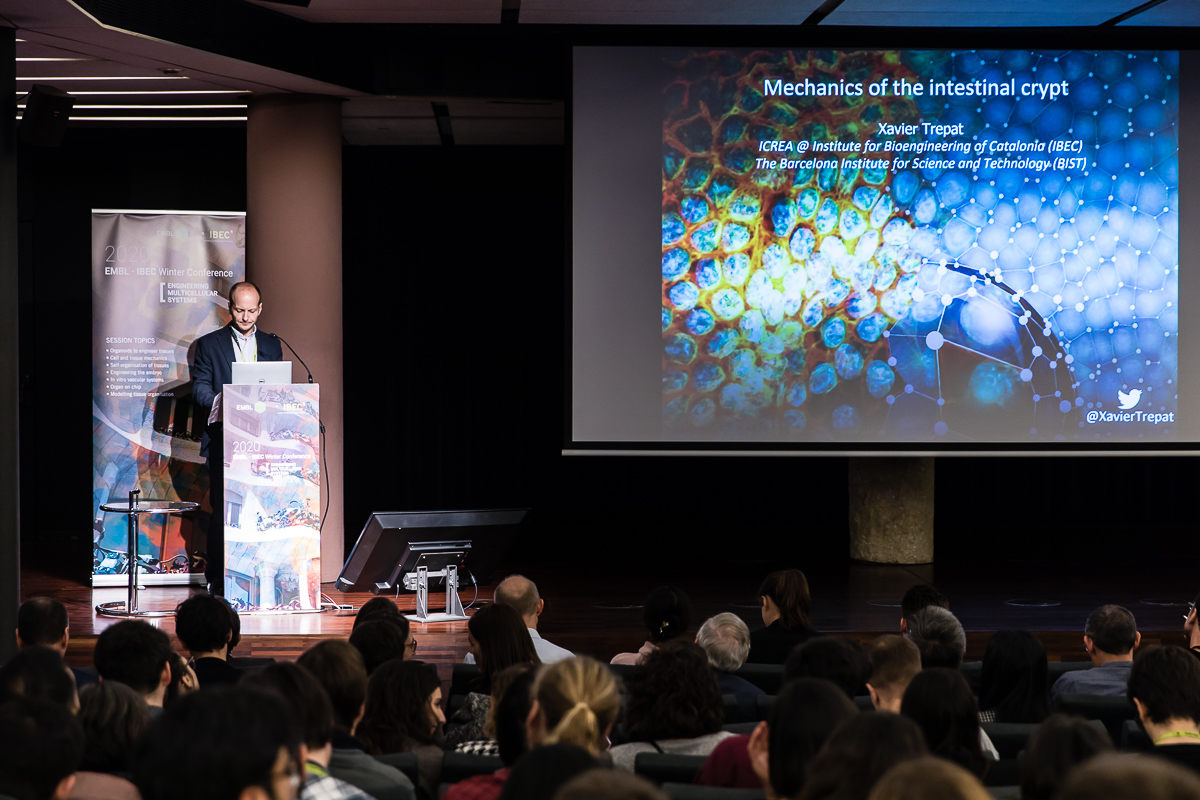
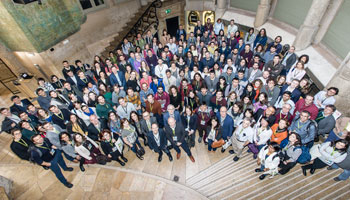
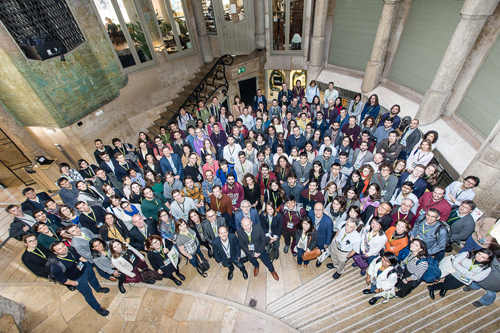
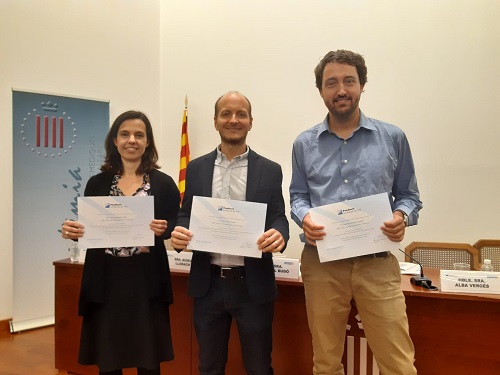
 Three IBEC projects have been selected to receive funding from “La Marató 2018: Against Cancer.” One of the projects is led by the researcher Pere Roca-Cusachs and the other two are co-led by the researchers Xavier Trepat and Núria Montserrat.
Three IBEC projects have been selected to receive funding from “La Marató 2018: Against Cancer.” One of the projects is led by the researcher Pere Roca-Cusachs and the other two are co-led by the researchers Xavier Trepat and Núria Montserrat. 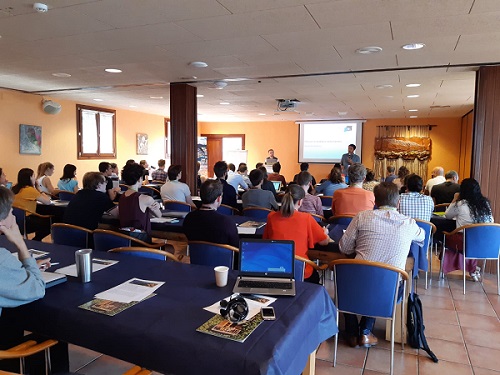
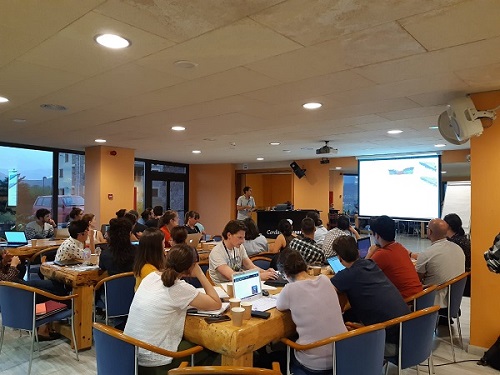 More than 60 people attended the “Mechanobiology of Cancer Summer School 2019” organised by IBEC as the center is in charge of coordinating the Mechano·contorl project. The summer school was held in Prullans, a tiny village located at the Catalan Pyrinees between 17 and 21 of September. The event was a great success both in participation and scientific level. The aim of the summer school was to provide training on mechanobiology, and specifically its application to breast cancer, and promote interactions between professionals of the field.
More than 60 people attended the “Mechanobiology of Cancer Summer School 2019” organised by IBEC as the center is in charge of coordinating the Mechano·contorl project. The summer school was held in Prullans, a tiny village located at the Catalan Pyrinees between 17 and 21 of September. The event was a great success both in participation and scientific level. The aim of the summer school was to provide training on mechanobiology, and specifically its application to breast cancer, and promote interactions between professionals of the field. 
